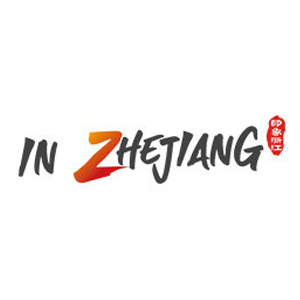Silicon Valley Chinese: The Stories Behind
2021-07-15 14:50:33 source: Cultural Dialogue

I find myself somewhere between dream and life, between China and the United States, between Chinese food and Western dishes, between not young and not old, but with a river of love in my heart that will never stagnate.
There is an amazing land on the South Bay of San Francisco, not marked on any map, but known as an international tech hub—Silicon Valley. More than a century ago, the Chinese here were mostly gold miners, railway workers, laundrymen...now they are professors, CEOs and even politicians. This is where my story begins.
Chinese in Silicon Valley are the most characteristic group of Chinese community living in the United States. With the ethnic spirit of diligence and striving, they are showing how the Chinese people are influencing the world. With the aspiration to comprehensively record their struggling history and the power of achieving their dreams through images, I started to plan the documentary Silicon Valley Chinese back in 2015.
After the premiere of the first episode “The Power” at Stanford University, a reporter from China.org.cn asked: “what do you mainly want to convey to the public through the film? Is it to set a model for the young generation of China at home and abroad?”
I replied: “Silicon Valley had changed the world and the Chinese had changed Silicon Valley. All these needed to be known to the public. My instinct told me that by making this large-scale documentary series, I could collect and record various stories of Chinese people from all walks of life in the United States. I felt that I have the duty and mission to let the world know their work, life and contributions.”
Nowadays, more and more young Chinese come to the United States. When these young people are exposed to Western culture and education, how can they connect with their parents and families when they return? This is the problem that cannot be ignored and this is also the issue tackled in the second episode “The Focus”. Digging into the success factors of these Chinese elites may be able to give the younger generation more inspiration.
We interviewed four characters in each episode, and planned to make a big movie with the same name after ten episodes. The first episode “The Power”, completed in 2016, won the Outstanding Entrepreneur Documentary Award during the Davis International Film Festival. We showed career development of four prominent Chinese entrepreneurs living in Silicon Valley in this episode: Zhang Liang—founder of Trust Look Mobile Security, Cui Yi—a Stanford material science professor, Shen Ci’en—founder and CEO of Ufrate Global Incubator and Yu Guoliang—founder of Epitomics.
The second episode focuses on the education experience of three outstanding Chinese-American teenagers and one Chinese-American official. Vincent Zhou, born in Palo Alto, won the bronze medal of World Figure Skating Championship in 2019. Kevin Ji from Palo Alto is a computer science student at Stanford and also a board member of Michelle Obama’s BetterMakeRoom.org. Stephanie Zhang is daughter of the famous physicist Zhang Shoucheng. And Shao Yang is the first man born in China to become an elected official in the Bay Area in 2014. Throughout the story of these four characters, we did find that there was some kind of secret formula of educational success for Silicon Valley Chinese families.
Documentary was a tool to help people find truth. Although the two episodes of Silicon Valley Chinese fell short of the original expectation, they did achieve our goal to explore the ethnic Chinese culture in Silicon Valley. Actually, this was not my debut documentary. I had produced The Faith in Ailao Mountain earlier to show my concerns on the life of those sick mothers who had attempted suicide several times. I was conflicted at that beginning till I realized as a narrator, my opinion didn’t matter at all and the characters in the film would express themselves. Documentary was just a different way of writing, which was much familiar to me and also the way I had been well known to the public before 2014.
At the end of 2014, I shot a documentary called Silicon Valley Millennium with some Americans by chance. There was no Chinese in this film since the filmmakers thought the contribution of Chinese in Silicon Valley was not remarkable. This aroused my curiosity to explore the story of Chinese in Silicon Valley, most of whom came from top universities in China, but their voices could be rarely heard.
Enthusiastically I threw myself into preparing for a documentary on this. I bought a new camera and made an announcement in an old Spanish theater in America that the shooting of Silicon Valley Chinese was officially started on March 10, 2015. In the following nine months, I had to face the difficulties of lacking money and the withdrawal of partners until I came across the young director Li Yu and his assistant Yang Xue. We worked and stayed together to make our every effort to complete this documentary.
After 445 days, 3,578 hours’ shooting, editing and interviewing 33 Chinese elites in Silicon Valley, Silicon Valley Chinese finally premiered on May 28, 2016 at a theater of Stanford, the birthplace and heart of Silicon Valley. Over 400 audiences attended this premiere.
Eva Zhang, one of those who watched the premiere, said: “the premiere of Silicon Valley Chinese should be considered the most significant event in the history of Chinese people in the bay area. Chinese living in Silicon Valley—all Chinese people—should watch it!”
Zhang Ci is a writer, documentary director and producer. After graduating from the Department of Chinese, Yunnan University in 1983, she began making documentaries, participating in Bumming in Beijing: The Last Dreamers directed by Wu Wenguang in 1988. In 2015, her documentary The Faith in Ailao Mountain won multiple awards at the World’s Independent Film Festival, Chinese American Film Festival (CAFF) and San Francisco International New Concept Film Festival (SFNCFF).


read more




